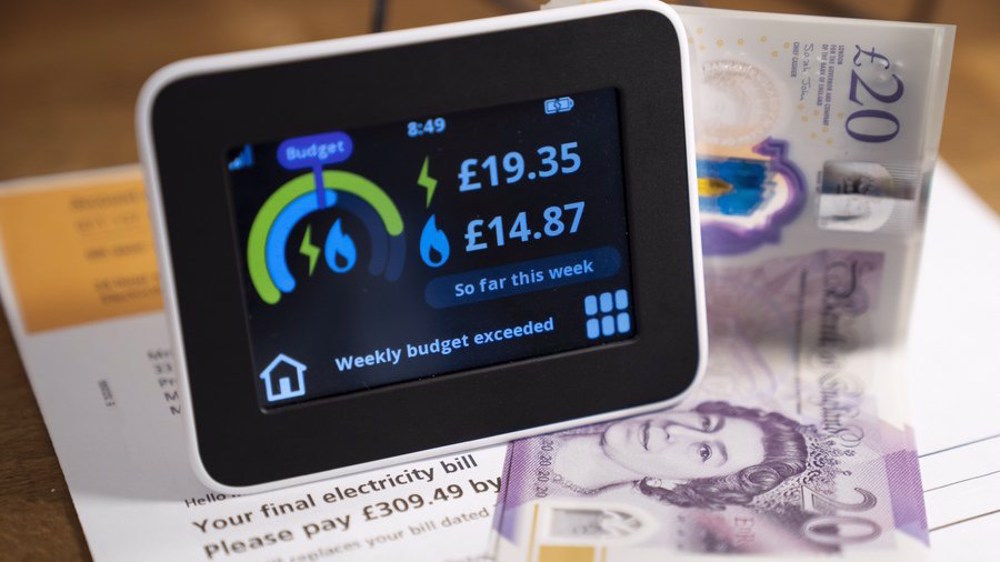UK energy crisis: Angry Brits say almost impossible to pay soaring energy bills
The energy crisis and spiraling inflation have taken a heavy toll on the European people, especially the UK citizens, with some saying that the skyrocketing prices and worsening cost-of-living crisis are somehow impossible to contend with.
Energy prices have soared across Europe since fall 2021, driven in part by the Russia-Ukraine war and the pandemic. In this regard, the UK energy prices rose more dramatically than France and Italy.
Germany is regulating the temperature in workplaces down to 19 degrees Celsius (66 F). France has set up an energy-shortage warning system which would alert residents and businesses to turn down the heat in their buildings to 18 C (64.4F). In Britain, London’s fire chiefs felt it necessary to warn residents against having open fires at home.
According to the Office for National Statistics (ONS), in October, British households paid 88.9 percent more on average for electricity, gas and other fuels than a year ago. Domestic gas prices in October, in particular, were more than double than a year earlier.
In a complaining twitter post, a UK citizen said that his electricity bill is more than his rent.
“I am in shock. I have just had my electricity bill for the past month. My rent is £600 a month. The electricity bill for the past month is £761,” Brynin said.
I am in shock. I have just had my electricity bill for the past month. I live in a single-occupancy, two-bedroom cottage, with electric central heating. I am extremely careful with the heating.
— R S Brynin, Anglo-Jewish Author (@robertbrynin) December 20, 2022
My rent is £600 a month.
The electricity bill for the past month is £761.
According to the latest UK Economic Outlook, published by KPMG, the UK economy will shrink by 1.3 percent in 2023, amid continued inflation and higher interest rates. Also the rate of unemployment could reach 5.6 percent by mid-2023, up from 3.7 percent, representing an increase of around 680,000 people.
The average annual energy bill surged 96 percent from last autumn to £2,500 (roughly $3,000), with the UK government intervening to cap the unit cost of gas and electricity bills at that level until April 2023.
Rising energy prices, along with soaring energy costs, have largely contributed to the UK cost-of-living crisis.
"Some families across the UK in the current cold Christmas have to juggle household incomes between staying warm or buying food," said Keith Baker, a research fellow in fuel poverty and energy policy at Glasgow Caledonian University in Scotland.
"We've now got to the point where charities are trying to get out warm clothing to people," Baker added.
In the meantime, UK's economic crisis has prompted various groups in society to take industrial action, going on strike for higher wages to cover the soaring rate of inflation which has risen to above an unprecedented level of 11 percent.
From nurses to teachers, and to railway employees, British workers in various sectors have been staging back-to-back walkouts in the last few months, as the cost-of-living crisis is simmering across the country.
As a result of these strikes, the British people are facing postponed hospital appointments, canceled trains, and travel delays during the winter holiday season.

Trump Ukraine mediation muddle

Ukraine peace talks downgraded in London as Kiev rebuffs Trump’s proposal

Moroccan port workers protest Maersk ship carrying F-35 parts to Israel
VIDEO | Press TV's news headlines
VIDEO | Russia to begin gas supplies to Iran via Azerbaijan, boosting energy ties
VIDEO | Protesters in Damascus slam Arab silence on Gaza
VIDEO | S African protestors decry America’s ongoing support for global aggression
VIDEO | Spokesperson: EU committed to diplomatic solution with Iran
Iran, Oman discuss arrangements for third round of indirect Tehran-Washington talks
Iran offers mediation as India-Pakistan tensions escalate
VIDEO | Massive rally in Yemen continues support for Palestine despite US aggression











 This makes it easy to access the Press TV website
This makes it easy to access the Press TV website